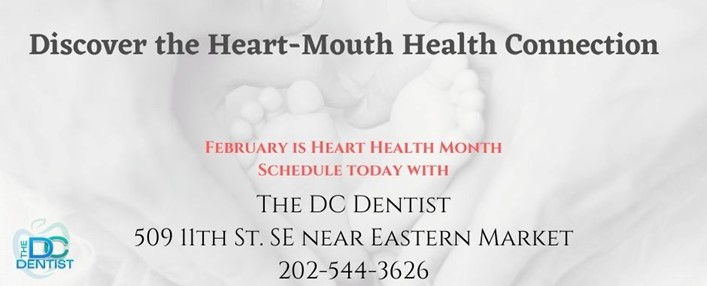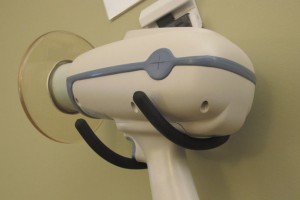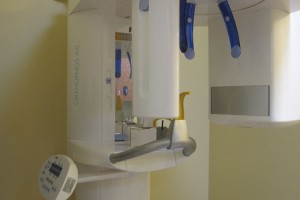0
February is Heart Health Month. We want all our patients to have a clean healthy smile and heart.
Heart disease is the leading cause of death in the United States and we want to change that.
Heart Disease is preventable so be sure to know if you are at risk. There are many risk factors you can control and some
that you cannot control. Learning about them can lower your risk of heart disease.
Heart Disease and Oral Care
See your Dentist at least twice a year or more if required. Lowering the bacteria in your mouth will help lower your risk of developing heart disease. A study found:
Having a moderate or advanced stage of gum disease can interfere with your blood pressure control and can put you at a higher risk for heart disease than someone with healthy gums.
Your oral health can provide doctors with warning signs for a range of diseases and conditions, including those in the heart.
By continuing to be proactive about your oral health care, you can protect yourself from developing a connection between oral health and heart disease. We want you to have a healthy, clean, beautiful smile throughout your life.

Here are other lifestyle choices you can make to reduce your chances of getting heart disease besides seeing your dentist regularly:
Choose foods low in saturated fat, trans fat and sodium. Do eat plenty of fruits and vegetables, fiber-rich whole grains, fish, nuts, legumes and seeds and try eating some meatless meals. Select lower fat dairy products and skinless poultry. Limit your intake of sugar-sweetened beverages and red meat. If you choose to eat meat, select cuts that are lean.
Additionally, for 2 or more days a week your body needs muscle-strengthening activities that work all major muscle groups (legs, hips, back, abdomen, chest shoulders, and arms). Children should get at least 60 minutes of activity every day.
Make sure that you get enough sleep. If you don’t get enough sleep, you raise your risk of high blood pressure, obesity, and diabetes. Those three things can raise your risk for heart disease. Most adults need 7 to 9 hours of sleep per night. Make sure that you have good sleep habits. If you have frequent sleep problems, contact your health care provider. One problem, sleep apnea, causes people to briefly stop breathing many times during sleep. This interferes with your ability to get a good rest and can raise your risk of heart disease. If you think you might have it, ask your doctor about having a sleep study. And if you do have sleep apnea, make sure that you get treatment for it.
What are the heart disease risk factors that I cannot change?
Now we must concentrate on what we can change rather than what we cannot change.

 Call Us TODAY: 202.544.3626
Call Us TODAY: 202.544.3626










